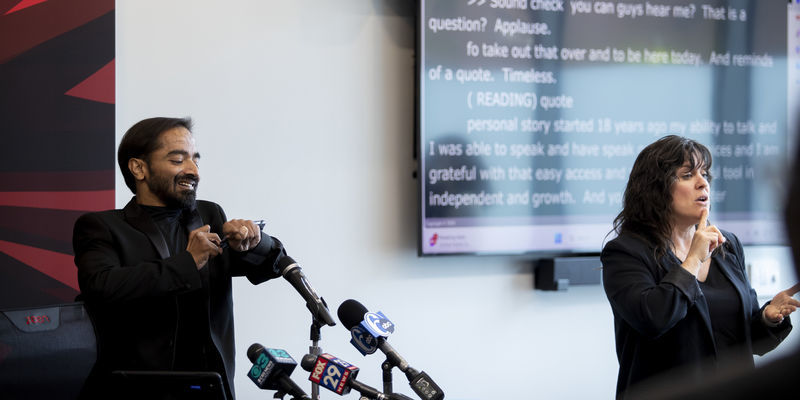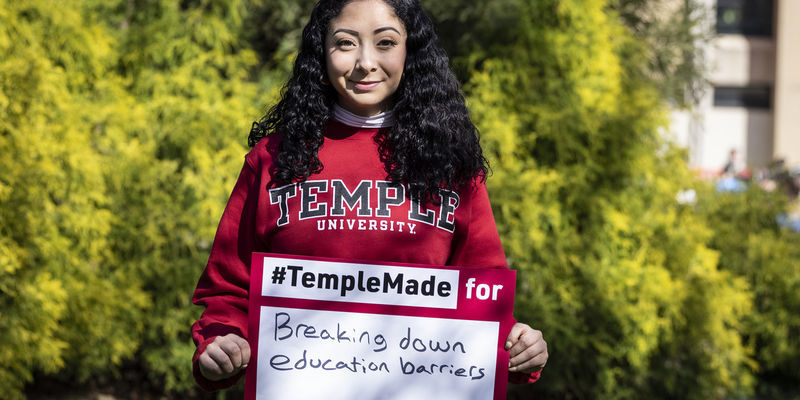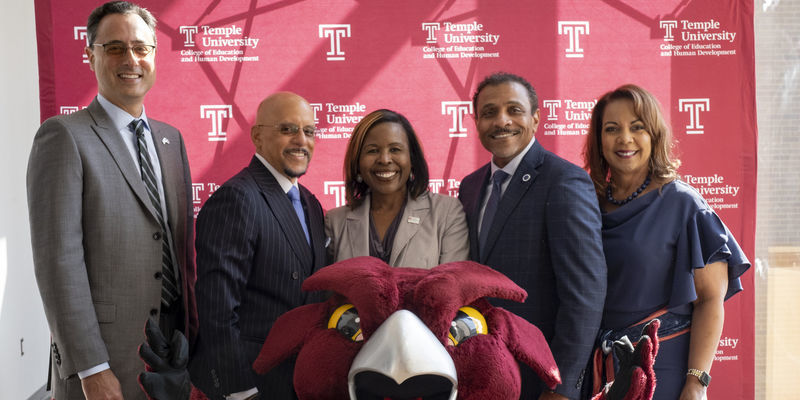Pennsylvania Secretary of Education Khalid N. Mumin visits Temple University College of Education and Human Development
CEHD Dean Monika Williams Shealey highlighted some of the college’s signature programs during Secretary Mumin’s visit.

Pennsylvania Secretary of Education Khalid N. Mumin visited Temple University’s College of Education and Human Development (CEHD), where he gained critical insight into how the college is preparing the next generation of educators.
“Like many other states across the nation, Pennsylvania is facing an educator workforce shortage, and expanding the pipeline of future high-quality educators is a top priority of the Shapiro administration—coupled with our efforts to expand access to affordable postsecondary education for all students,” said Secretary Mumin. “Being able to see firsthand how our institutions of higher education, like Temple University, are working to prepare the next generation of teachers while addressing educational equity will inform Pennsylvania’s ongoing efforts in recruitment and retention.”
During his Oct. 2 visit, Mumin met with CEHD Dean Monika Williams Shealey and a group of administrators, educators and students. He addressed Gov. Josh Shapiro’s recent investments in pre-K, primary and higher education.
“We have a governor who truly embraces education,” said Mumin, who was appointed to his position in 2023.
Mumin highlighted some of the Education Department’s efforts, which include establishing a new career and technical education (CTE) program in education for high school students, the awarding of $1.5 million in grant funding to colleges for recruiting and retaining special education teachers, and creating the Student Teacher Support Program to provide a stipend to student teachers.
Mumin rounded out his presentation by highlighting Temple’s strengths as a local research institution.
“Education is a local phenomenon. More than likely, where students are educated and they graduate, it’s usually where they tend to stay. That’s the strength in Temple,” he said. “You have a niche and a responsibility to really be the uplift for the city of Philadelphia. The timing is ripe right now.”
During the meeting, Dean Shealey stressed the importance of state government support in preparing the next generation of educators and supporting current practitioners.
“We are honored to welcome Secretary Khalid N. Mumin to Temple University’s College of Education and Human Development. His commitment to educational equity aligns perfectly with our mission to educate, support and prepare learners and leaders who advance equitable systems in our schools and communities,” she said.
“Together, we can foster a world where all individuals have access to and outstanding education, creating positive change not only in Philadelphia but throughout the commonwealth.”
Three Temple educators were on hand to provide insight on various initiatives: Juliet Curci, assistant dean of college access and persistence; Sally Gould-Taylor, executive director of the Institute on Disabilities; and Meghan Raisch, assistant professor of advocacy and organizational development.
Shealey briefed Mumin on some of CEHD’s key signature programs including the Temple Education Scholars Program, Temple Teacher Residency Program, and the Center for Professional Development in Career and Technical Education, which provides certification for individuals with career and technical backgrounds to teach subjects such as auto repair, cosmetology and culinary arts.
“Our CTE Center is a lever for our workforce development efforts,” Shealey told Mumin. “We want to work with industry to prepare adults, as well as increase awareness to middle schoolers and high schoolers in areas where the state needs most to expand its workforce.
“I also want to highlight the fact that we are preparing the next generation of researchers to address those pressing issues that are facing our state, and we want to be the go-to resource for you.”


